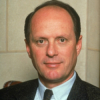Robert Ballard

Robert Ballard
Robert Duane Ballardis a retired United States Navy officer and a professor of oceanography at the University of Rhode Island who is most noted for his work in underwater archaeology: maritime archaeology and archaeology of shipwrecks. He is most known for the discoveries of the wrecks of the RMS Titanic in 1985, the battleship Bismarck in 1989, and the aircraft carrier USS Yorktown in 1998. He discovered the wreck of John F. Kennedy's PT-109 in 2002 and visited Biuku Gasa and...
NationalityAmerican
ProfessionExplorer
Date of Birth30 June 1942
CityWichita, KS
CountryUnited States of America
It's not a huge surprise that there are habitations at the bottom of the Black Sea.
I am really dedicated to understanding the planet/creature on which we live and know that means I must go beneath the sea to see 72 percent of what is going on.
If you compare NASA's annual budget to explore the heavens, that one year budget would fund NOAA's budget to explore the oceans for 1,600 years.
There are more active volcanoes beneath the sea than on land by two orders of magnitude.
There's a long list of technologies that have now made it possible to carry out very precise search efforts in the deep sea.
I mean, there is amazing amount of oil and gas and other resources out beneath the sea. It's staggering.
The DEEP SEA has more history in it than all the museums of the world-combined.
Fifty percent of our country that we own, have all legal jurisdiction, have all rights to do whatever we want, lies beneath the sea and we have better maps of Mars than that 50 percent.
It is a quiet and peaceful place - and a fitting place for the remains of this greatest of sea tragedies to rest.
The deep sea is the largest museum on earth, it contains more history than all the museums on land combined, and yet we're only now penetrating it.
The threat from flash flooding is diminishing rapidly. We're not completely out of the woods, but we're on the right path.
I am really dedicated to understanding the planet/creature on which we live and know that means I must go beneath the sea to see 72 percent of what is going on.
So, I'm able to network experts on demand, when I need them.
I'm a geophysicist and all my earth science books when I was a student, I had to give the wrong answer to get an A. We used to ridicule continental drift. It was something we laughed at. We learned of Marshall Kay's geosynclinal cycle, which is a bunch of crap.